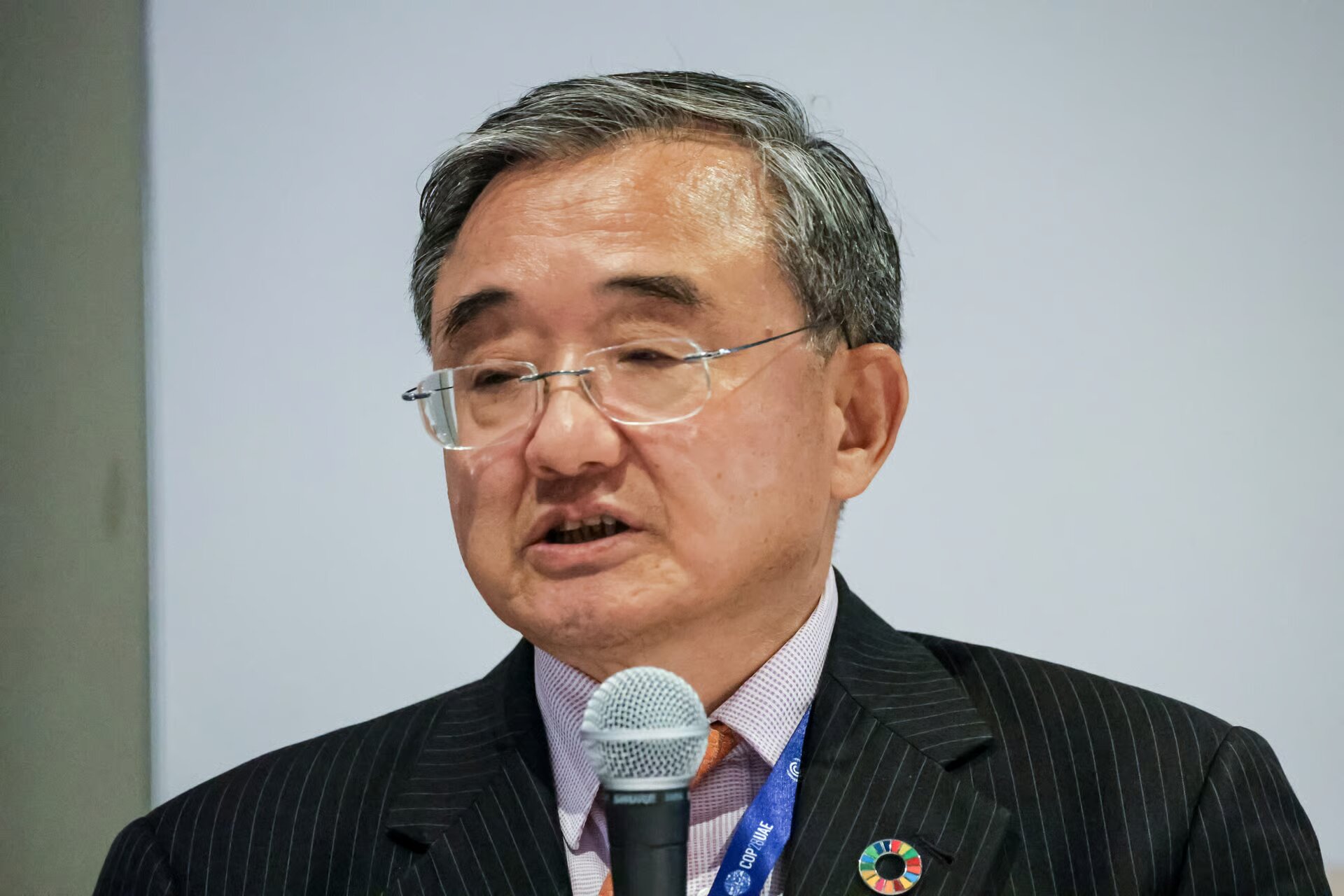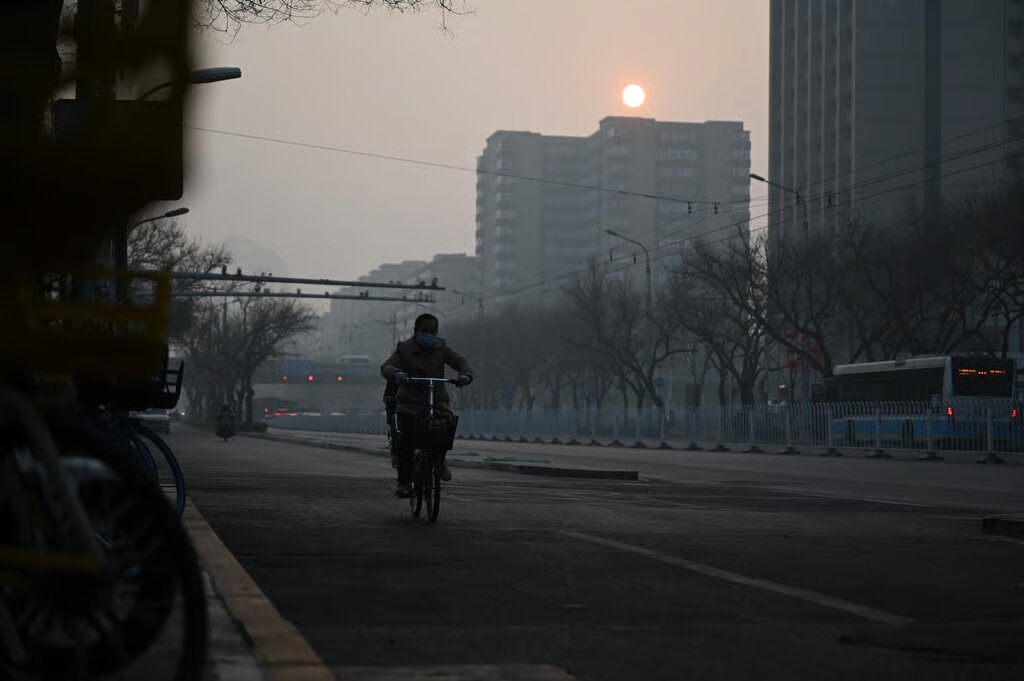Liu Zhenmin also defended Beijing’s own climate efforts as “very ambitious.”

BELÉM, Brazil — The European Union’s new pollution-cutting targets are insufficient, China’s climate envoy told POLITICO on the sidelines of this year’s COP30 conference while also condemning the “bad example” set by the absent United States.
In a rare interview on Monday, Liu Zhenmin rejected criticism of China’s climate efforts, which his EU counterpart Wopke Hoekstra recently described as “clearly disappointing,” and argued that developed nations including the 27-country bloc should decarbonize faster.
But he also expressed hope that China and the EU could step up their cooperation on climate issues — and saved his harshest criticism for the Trump administration’s decision to once again withdraw from the Paris Agreement and skip the COP30 summit in Belém, Brazil.
“It’s terrible. The absence of the U.S. really creates a very bad example. It impacts the integrity of climate conservation,” he said. “So we hope that the U.S. really can return to the Paris Agreement and return to this multilateral process in the coming years.”
As for the EU’s recently agreed emissions-cutting targets, Liu said they are “not so good.”
The EU aims to reach net-zero by 2050 and has passed some of the world’s most ambitious climate policies. Its member governments agreed this month to cut planet-warming emissions by between 66.3 percent and 72.5 percent until 2035, and by 90 percent until 2040 compared to 1990 levels.
Liu argued that as the world aims to collectively reach net-zero in 2050, the EU and other developed countries should achieve this milestone “before 2040” in order to give developing nations more time to industrialize.
“This concerns climate justice,” he argued. “We need to treat [targets] differently between the developed countries and developing countries.”
China — which insists on keeping its classification as a developing country despite its status as the world’s second-largest economy — has committed to zeroing out CO2 emissions before 2060, and to cutting pollution between 7 percent and 10 percent until 2035 compared to an undefined peak, which may have occurred this year. Liu defended the plan as “very ambitious.”
Yet while the pledge marked the first time Beijing has promised a specific emissions cut, it fell short of what experts said was possible or was needed to curb global warming, given that China represents 30 percent of the world’s pollution today — compared to the EU’s 6 percent.
Trade challenges
Liu also urged the EU to step up its climate cooperation with China, but said there was “no real replacement” for the United States.
Given “the current challenges, both geopolitical and economic, the EU and China need to really enhance their collaboration on addressing climate change,” he said. “The European Union can learn a lot from China, and China can learn a lot from the European Union.”

But the bloc, he suggested, needs to sort out its internal differences if it wants to take a leading role in global talks — a reference to the domestic disagreements that delayed the EU’s climate targets and made a joint unveiling of Beijing and Brussels’ goals impossible.
“I hope that the European Union can improve their internal coordination much better,” he warned, adding that it could affect “their leadership in this global multilateral process.”
One European negotiator said that China “was feeling let down by the EU” and had “said they were ready for joint [climate target] presentation in June.”
Advertisement
Advertisement
The European Commission did not respond to a request for comment. At a press conference on Monday, Hoekstra said that “leadership is, in my view, first and foremost about what you do … that’s why I’m so satisfied about the 2035 target and 2040 target.”
Without naming the EU, Liu also warned against “unilateral measures that might damage international collaboration” on climate.
At COP30, many emerging economies have been pushing for a debate on “unilateral trade measures.” The move chiefly targets the EU’s upcoming carbon tariff, known as the carbon border adjustment mechanism (CBAM), which is designed to protect the bloc’s industry against competition from countries with no or low carbon pricing.
Brussels says it’s open for discussions at COP30 but that any disputes should be taken to the World Trade Organization, not the U.N. climate summit.
“People are worried about both the CBAM implementation starting from next year, as well as about the U.S. tariff war, that they will be really preventing some of the cooperation on the transition,” Liu said.
Asked about Liu’s comments, White House spokeswoman Taylor Rogers said: “President Trump set a strong example for the rest of the world by reversing course on the Green Energy Scam and unleashing our natural resources,” urging other countries to “follow President Trump’s lead before it is too late.”
The U.S. State Department offered no direct response, but said regarding its absence at COP30: “The Trump Administration refused to use taxpayer dollars to send or facilitate any official travel for this conference, which is dedicated to hamstringing the American economy and bankrupting the American people.”
